Solar Spring + Last Quarter: Return of the light
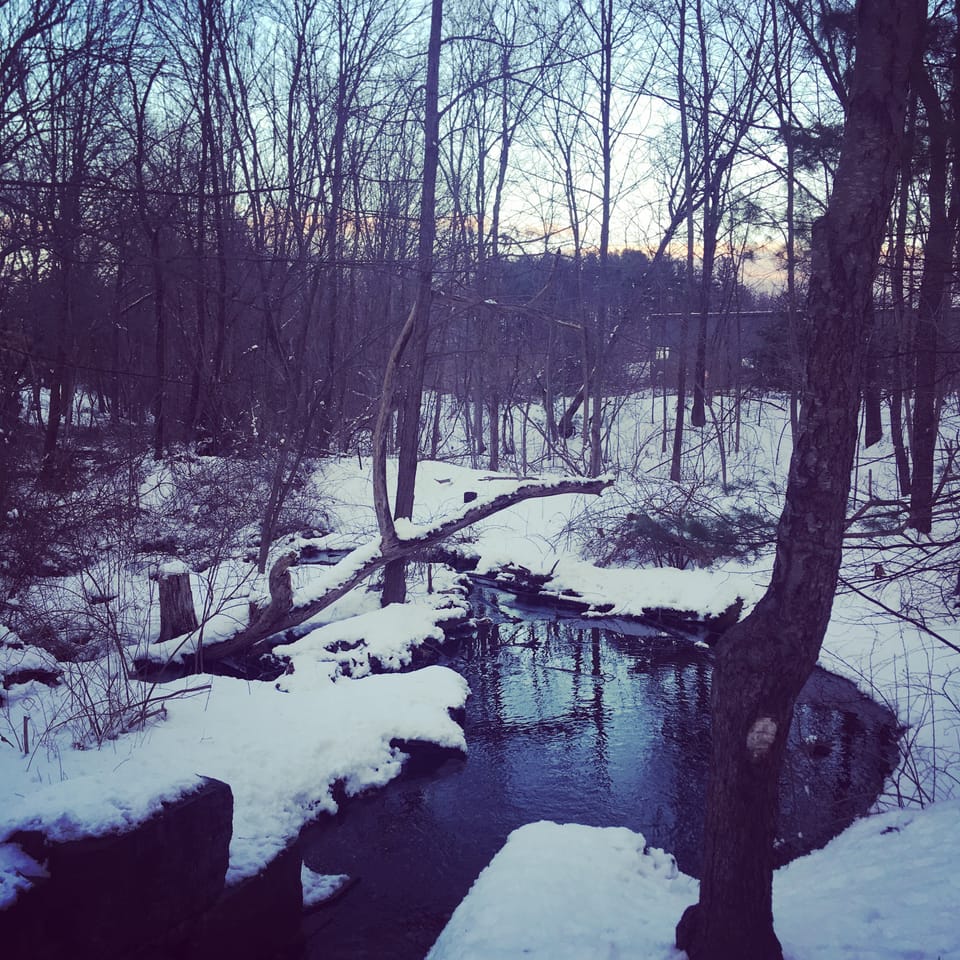
Hello. It's Friday, and the sunlight is coming back to this hemisphere. I'm trying to find the words for how that makes me feel.
One word is wariness. As I wrote last year, many people seem to hunger so aggressively for the light and warmth of summer that although their craving stems from a very understandable cultural source, it makes them almost pathologically dismissive of what a catastrophe "eternal summer" would (and maybe will) prove; at the very least, I have a hard time hearing or seeing others complain about how dark, cold, and miserable winter is, as though they imagine the summer that will save them is anything like the gentle summers of decades past. Winter is sacred rest and regeneration; cold promotes its own connectedness; darkness is beautiful. Show the season some respect, I think among the light-worshipers who have forgotten that the Sun blesses us with his coming and his going.
And yet — we are still entering what's evolved into one of my favorite times of year, the season when increasing light levels quicken their pace and we leave the stand-still feelings of Jól and solstice. (How strange to imagine speaking of "the light's return" when sunrise and sunset times barely deviate by more than a few minutes for weeks.) Winter's transformative alchemy is entering its final phases, and we prepare to see what the remade world will look like.
I am mostly a diurnal animal, and never moreso than I've become these days; I cannot help responding to these solar changes on a molecular level. The arrival of solar spring on Gŵyl Fair brings shifts in my physical energy and my emotional resilience that could not occur in any other season. This rest of this post is an attempt to express the details of those shifts without resorting to language that resents the darkness or falsely elevates summer's heat above winter's cold.
First: the holiday
Last year, my post about Gŵyl Fair was for paid readers only, so for everyone else, I feel obliged to retread some explanations rather than take anything for granted.
The day that has just fallen behind us is called Gŵyl Fair in the Cymric tradition, which translates to "Mary's Feast" and is fully Gŵyl Fair y Canhwyllau, the Feast of Mary of the Candles. As the name Mary obviously suggests Christian syncretism, the candles here tie to Candlemas — a particularly ancient Catholic observance when candles would be lit to echo the sunlight's return[1], while conversely people would acknowledge that they no longer needed candlelight to perform work outdoors. Besides celebrating that convenience, there might also be some relief since the beeswax or tallow used for candle-making were far from infinite commodities. There is no religious specificity to that ancient challenge, so for lack of any other Cymric terms for February 1st, I don't mind an abbreviated reference to something about candles.
Also, I do have a perverse delight in referencing Mary as a mother goddess, distanced from the context of Christmas; again, sacred nativity around the winter solstice does not make much sense to me. And in thinking of Mary's Christian-animist, syncretic goddess-form, it's easy for me to also think of her Irish counterpart Brigid, the goddess-and-saint who is not necessarily a mother in the flesh but is still an archetype of fertility through other forms of creation and renewal: the patron of poets, smiths, and healers.
Brigid's name is given to February 1st among Irish Christians, and this would be the day for weaving Brigid's crosses, but as most Celtic-influenced witches and neopagans already know, as a spoke on the Wheel of the Year the holiday is "properly" Imbolc (or its modern Irish name Imbolg). Although I cleave too strongly to Cymric habits, what I will say in favor of calling it Imbolc is that just as a pre-Christian name has survived in Ireland, so too are certain pre-Christian customs better documented for it. When researching Gŵyl Fair in Cymru, it can be harder to find rites that don't seem like Christian grafts.
I do like the ambiguous etymology of Imbolc, too. It may be Old Irish i mbolc "in the belly" or oí melg "ewe's milk," both options suggesting an ancient reverence for this season of lambing and calving; it may equally be from a Proto-Celtic *embibolgon, "budding" as in budding trees. I think all interpretations make sense, reflecting both zoological and botanical concerns.
As may be clear by now, even with my personal use of a Cymric name for this holiday, the day signifies many of the same things for me that it does for the majority of people who go the Gaelic route. To me, the Sun is not exactly reborn on Gŵyl Fair, as his two faces each have their own time of rebirth, but regardless there are other births to honor: the animals who will soon bear their young, and the nine-month human gestational cycle that I assign to the Moon, who would have become ritually "pregnant" in May and now releases a new star in the sky.
With the birthing we become unburdened. We have a chance to recover from long ordeals, and we can start to envision a new fertility cycle beginning. That is the promise of solar spring: not some superior climate condition but rather that raw, tender moment of awakening. The light half of the year isn't here yet, but we can see it in the distance.[2]
Night owl turned early bird?
It used to be that in winter I barely saw the Sun at all. About ten years ago, when I was very much an adult but still didn't feel like one yet, I had a delayed sleep phase to the point that from a capitalist perspective I might have had a "disorder." Left to my own devices, I would instinctively sleep from 4:00 AM to noon. I would only try waking at 9 or 10 if something like work demanded it; I could manage 8 if I had no other choice; anything earlier than that was absolutely laughable.
Naturally, the advantage of obeying my circadian rhythm was that I had more restful sleep, got fewer migraines, and incidentally was able to participate often in urban nightlife; the flip side was that besides struggling with the professional implications, I'm sure I was lacking in vitamin D (something I still struggle with ever since becoming an all-remote worker) and the depressive effects of winter were severe. To this day, I don't regret living as a night owl when I could, and I think that night owls have an important role to play in our communities. However, I do now believe that for my mental illness I had an inconvenient conflict of needs — if I could have operated more in sync with the Sun, I would have still dealt with anxiety, but depression wouldn't have affected me as greatly as it did back then.
I know this because now I'm incontrovertibly a "morning person." And outside of resurgent grief or trauma, I don't think I've experienced full depression in years. Someone might well ask, "How do you know that waking up early in the morning improved your depression, rather than that your depression improved for other reasons and made it easier for you to wake up early?" and to this I would say that well, on the one hand I don't know the answer — delayed or advanced sleep phases are often correlated with mental illnesses, but their causative relation is hotly debated — and on the other hand I know very clearly that the circadian shift preceded the mental health improvement for me, because this was such a recent development that I remember the order of events very well, and I paid close attention on purpose.
Within the first year of the covid pandemic, I started to feel like my body was waking itself up earlier no matter what I tried to do. I also started to consciously crave that solar alignment, as if being free of a mandatory commute allowed my mind to open up to how it would operate in a non-industrial context. This feeling called to mind how whenever I went camping, I did wake up at dawn, no matter how cold it was outside or when I'd bedded down that night. Something about living closer to the land compelled my body. And yet, nowhere within this initial time frame was I feeling less depressed than I used to be. If anything, I was more depressed; I was still living in the crazy-making mold house, still run down by making ends meet, well into total despair about the future of life on this planet, and now suffering from severe social isolation. Nevertheless, I found myself contemplating waking up at sunrise, and in summertime I was waking up without an alarm at previously impossible hours.
I think that besides my body reaching out for land connection, there was some biological inevitability in this. The fact of the matter is that most humans develop at least a mildly delayed sleep phase during adolescence, and then even in our 20s this can take a while to wear off even if we no longer need the long hours of sleep that our teenage bodies did — but going into our 30s, we tend to skew earlier no matter what we'd like to happen, just as we suddenly can't drink as much alcohol without suffering consequences. So even if my sleep phase delay was a very pronounced one, it was unlikely to last forever unless I also had some very aggravating factors at play. (I have not, for instance, suffered from outright insomnia more than a bare handful of times in my whole life.)
Be that as it may, I couldn't complete this shift until my owner was laid off from his 10:00 to 18:00 job in May 2022. At that point, he was lucky enough to find new work fast, but the hours were 7:30 to 15:30. He took it not only out of necessity but out of his existing desire to move into that particular industry; he still had a delayed sleep phase of his own, so I don't think he looked forward to waking up at 6. In my case, though, I had flexible work hours already so I leapt at the excuse to follow my body's new instinct while remaining on the same schedule as my owner.
The benefits were immediate. Even with plenty of things still causing me enormous stress at the time — and my anxiety very much did not need so much energizing sunlight — I felt a strange weight lifting nonetheless. My owner started his new job in summer, and I found that despite the midday to late afternoon malaise that would still strike in the heat of the day, I felt real joy in the cooler morning hours before ultraviolet rays could harm my skin. I spent more time outside, I did more things I wanted to do. The shrinking hours of autumn then felt relatively tolerable, and winter was like a revelation.
Now, this has been a seven paragraph story, but the ending is a twist. Though I've become an early bird, my bond with the Sun is firm enough that I'm wakeful at whatever point in the morning he is. This means once sunrise happens later than my 6:00 alarm, I truly need that alarm or I will simply keep sleeping. I still have no idea how anyone easily wakes up when there's no light outside at all.[3] Thus, even if winter does not challenge my moods as it once did, with less than 10 hours of sunlight I'm still prone to sloth, inertia, proto-hibernation. I feel slow down to my bones, and even if this, too, is natural — the world inviting me to rest as I ought — when my physical capacity is low, my resilience does suffer. What the body can handle is also what the mind can handle.
Trauma insists on sameness
At this time of year, there isn't yet enough light to bring all my capacity back, but there is suddenly enough that I can start talking myself into moving more, doing more. And with this there comes the renewed sense that I am a creature who can not only survive but flourish. I can do more than conceive of myself as permanently trapped in harmful cycles.
This is important when living past and with trauma. Trauma insists on sameness; in the moments when it attacks me, my nerves shriek with the warning that suffering is all I can feel and all I will ever know, and I should resign myself, live with despair, become a husk. The trouble with counteracting trauma's logic is that because trauma comes from things we largely cannot control, those of us who have embodied our trauma can never be sure that we won't eventually be revisited by something terrible. Such a possibility enables the inflammation, both literal and figurative, of hypervigilance. It can feel irrational not to be on the lookout for all potential threats, because they really are always present. And the only way to feel safe is to have a perfectly consistent environment. No alarms and no surprises, goes the song.
The self-abusing cycle even continues when there's self-awareness, because then when I realize I've overreacted to something, I berate myself into oblivion: how dare I think I could get past this? What a stupid, embarrassing, hysterical[4] mess I always am.
To my ongoing shock, however, I have been learning for a couple of years that no matter how impossible it feels — no matter how difficult it can be to draw the line between fairly challenging myself vs. punishing myself — I'm not going to heal all my old wounds without changing how I think of myself. This doesn't mean positive-thinking the pain away, nor subjecting myself to things I absolutely know I can't do. It does mean simultaneously engaging in the sorts of "self-care" acts that do help me while working to shed the behaviors that are merely self-soothing feedback loops. And it does mean that even if I have no guarantee of fully healing anything, I must allow for that chance instead of falling back on self-defeating prophecies.
I cannot hate myself for my trauma-informed mistakes. That will only make me as helplessly volatile as I'm afraid of.
This is a year-round struggle for me, but when the light is at its lowest, the temptation toward indolence does invite me to stay in safe shelter rather than venture out. It has been right for me to retreat and turn inward, but much in the way that a 20 minute nap can be more refreshing than 60 minutes, I should not stay in my shelter much longer than this. As the brightening Sun renews my physical energies, it serves as a reminder to me to now — now — start cultivating myself instead of lying fallow.
The best way I can conclude these reflections is to tell a very simple story. Not of something that has happened in exactly this way, but that might have, or could. You may think of it as a "guided meditation" if you like, but the you that I address in it is myself as much as anyone else; I may be a writer, but I don't have much experience in intentionally guiding other people through anything. I especially can't promise that these words will be therapeutic or otherwise likely to heal something. They are just words to take another look at everything I've tried to describe above, and to relate it back to the land and sky.
Sun on the snow
You have stepped from your doorstep into wet, dense-packed drifts of snow. They are crisp, but not unblemished. Why would no one else be here but you? Other animals have their own affairs to attend to. Some ways ahead you can see the prints of rabbit, squirrel, bobcat — or wildcat, depending where you are — and a tiny bird. You might even see another human has walked across this great expanse that will, in spring, become a meadow. Probably a human you know. If not, they are no threat.
The snow is also certainly cold, but you are well provided for by others, and by yourself, so your feet are protected by tall, supple boots lined and guarded by the fur of rabbits who had lived long, full lives, and whose deaths were a rare and sacred deed; you were given these boots by a person with great skill and great love for you. They also made you your coat, your hat, and your gloves. The scarf around your neck is, however, your own work. You knitted it from soft black wool.
You start your walk. You aren't looking for things to eat; whether or not you would find anything, your winter food stores have not yet run out. If the moment is right this morning, maybe the land will gift you something, but if not, you will survive. You did bring a knife, because you should always have a knife for sheer utility. You are walking because this is the first day in a while where icicles are dripping; all of this snow is not about to melt so quickly, but you know you will not freeze. You are walking because you saw a bluebird at your window when you woke, and last night you saw the Lion's brightest star crest the eastern horizon right before your dinnertime. The quiet season will be gone soon. Some creatures will be birthing, and others are breeding.
The snow that you cross is white, but not white. This soon after sunrise, there is still that tinge of blue, and to this you can also see increasing amounts of gold. The Sun himself has not yet cleared those treetops to the southeast, but that part of your forest is mostly birches and maples — the latter will soon flow with sacred sap — and their bare branches let that golden disc shine through very clearly.
To the southwest, the Moon is also hanging in her last quarter. Soon she will hide, but you can glimpse her frosty ghost for a little while. She looks a little tired, even moody, and this reminds you of how you fought tiredly to lace up your boots before setting out; but you forgave yourself for that, and so you forgive her, and she forgives herself, and she is patting you on the back as you keep going.
In your walking, you feel yourself heavy and earthen, a little stiff, certainly not as spritely as you would like. But the more that you stamp ahead, the more your blood warms and you are smiling. Maybe you'll walk until the Sun is above the trees, and you will go into the woods and see who else has come back besides the bluebirds. And whenever you do get tired, you can go home, where you will knit a little more, working on a scarf to give back to the person who loves you.
[1] The Sun's disc is also commemorated through pancake-type dishes in a number of European cultures, such as France's crêpes — to which my Québecois ancestry draws me, and in fact every Gŵyl Fair my owner and I eat a feast of crêpes. This is echoed in the Russian holiday of Maslenitsa when bliny are served, and although that day is linked in modern times with Fat Tuesday (right before the onset of Lent), this is yet another hint at some cross-continental instinct toward sweet, golden disc-meals that also make use of fresh milk and butter, which are now available from lactating herd animals. Does that mean we can rigorously verify a continuum of pre-Christian rites involving this same ritual food focus at solar spring's outset? No, but for a living, adaptable animism or paganism, such food rites seem entirely warranted all the same.
[2] Assuming of course that you live somewhere where solar spring (to me, 10 hours of daylight) has not already arrived, or is not still a few weeks away. One reason I keep the by-now "classical" Wheel of the Year in the first place is that besides having the British roots by which the modern Wheel was first conceptualized, I also live at a latitude where the progression of light levels almost exactly matches what my ancestors would have observed. I do get much more snow than Cymru currently does, and the snowy period lasts longer, and frost risk lasts longer as well, so I experience some agricultural differences anyway — but not so many as to grow pedantic about it, and meanwhile this land itself is always doing interesting things at each spoke of the Wheel. (It is also, however, increasingly my hope to learn more of the traditional indigenous calendars in use for my region, as a dynamic and decolonial animism cannot simply rely on European models for other continents.)
[3] The biannual clock change is also a bigger fiasco than before. My region already ought to be on Atlantic Time, not Eastern Time, and if it were then we could dispense with Daylight Savings altogether. I've spent most of my life coping with preposterously early winter sunsets compared to everyone else in my time zone. And now, waking up when I do, I start to enjoy an easy waking at the start of March, only to lose it again until mid-April; I would much rather just have my post-waking sunrises concentrated to a single period.
[4] Yes, that hysterical.
Thank you for reading. This closing message is my semi-regular reminder that if you've been reading here for a long while without paying, I don't mind at all, but this project does take time away from things that would actually help me make a living, so I would still be profoundly grateful to any new paid subscribers. There are several subscription levels available, and the lowest is only $1/month and already gives you extra things to read.
Next week, in contrast to the moods of this post I'm going to be preparing something like a thesis on my satanism and why I chose it. After that, I'll have a post on the ecological complexities of maintaining a clean home.
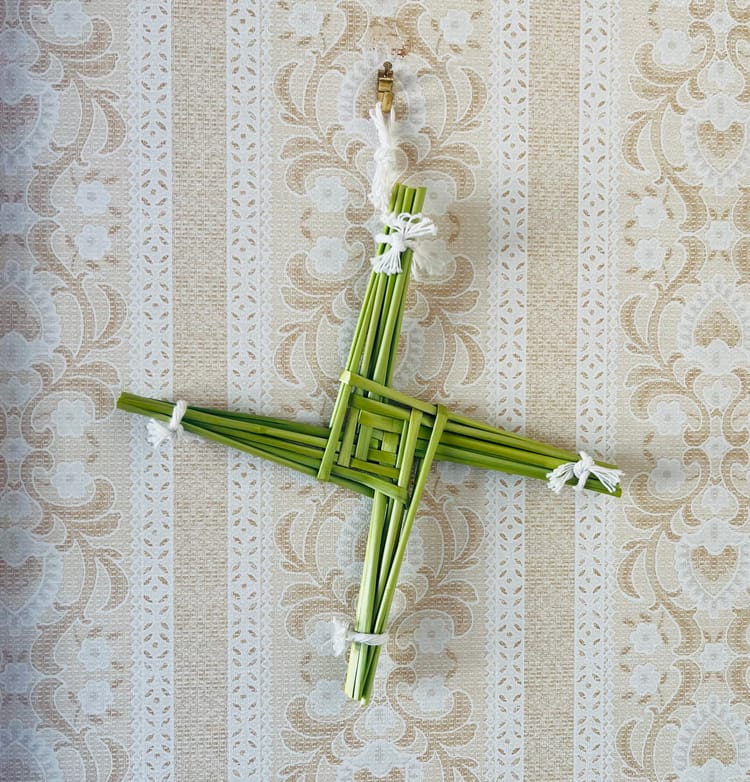
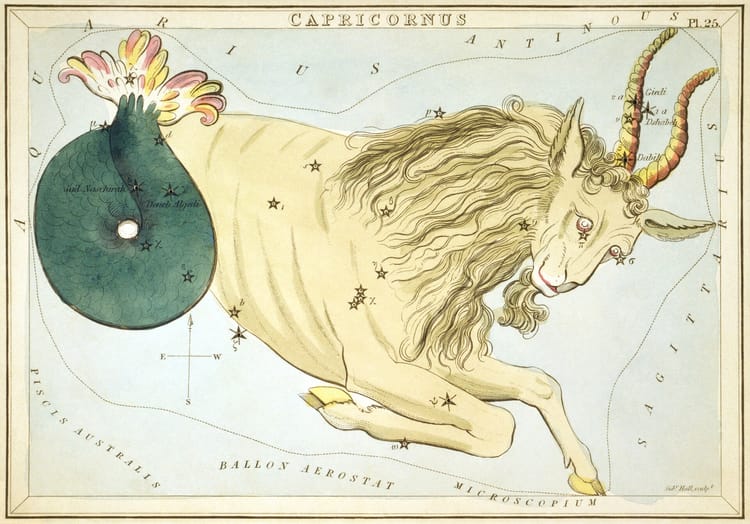
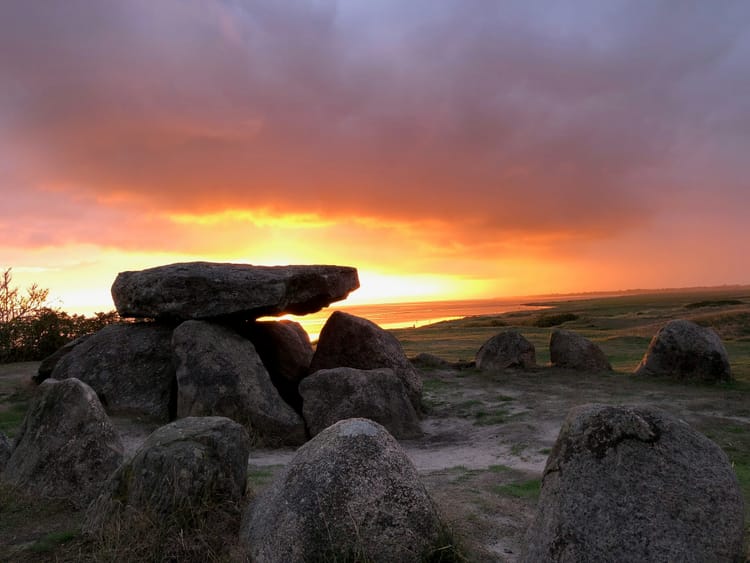
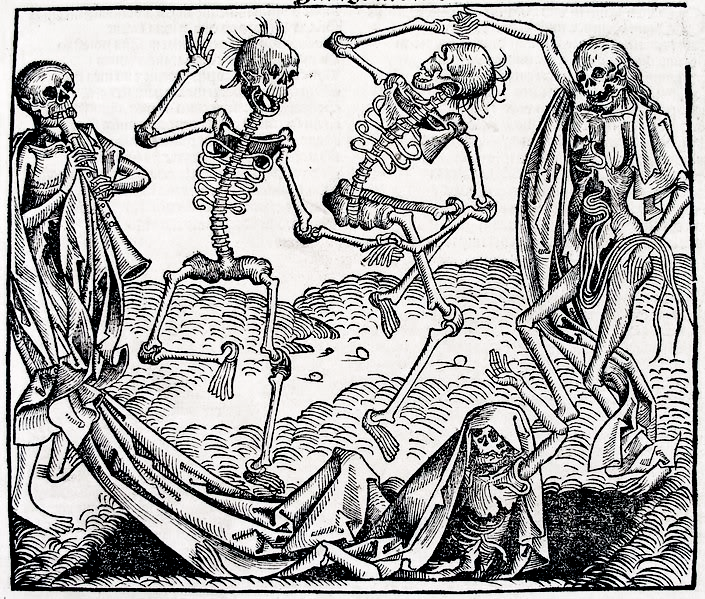
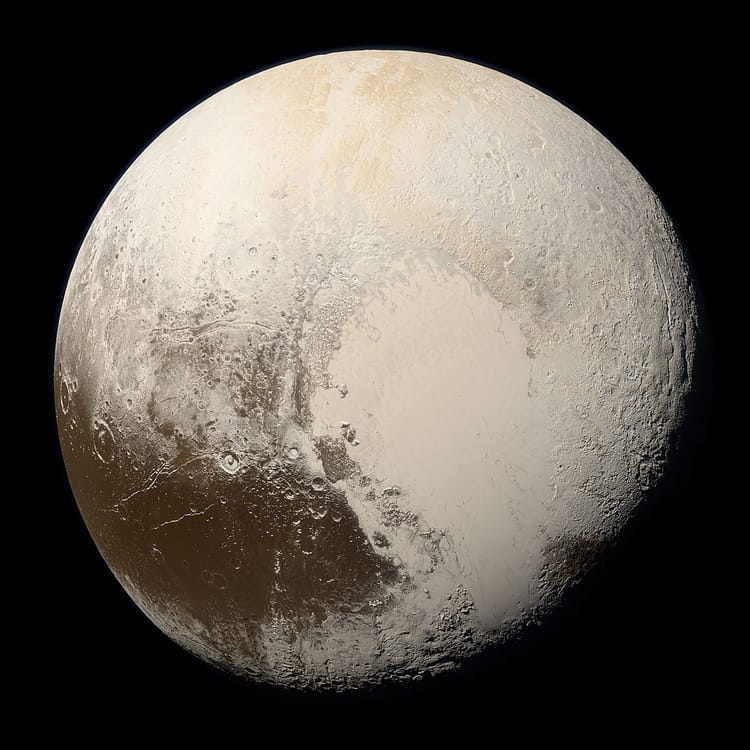
Member discussion